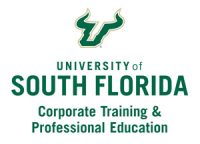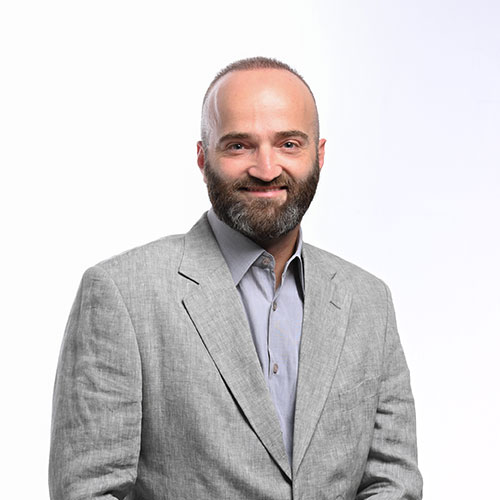
Be a catalyst for thriving at work.
Applications open for Spring Term 2025
Application Deadline: Rolling admissions | Upcoming Deadline: April 17, 2025
Start Date: April 28, 2025

Create thriving organizations and empower employees through a psychological and social science lens
Organizational psychologists play a vital role in understanding and optimizing the human aspects of organizations. By applying their expertise in human behavior, wellbeing, motivation, and organizational dynamics, they help organizations create healthier, more productive, and more fulfilling work environments that benefit both employees and the organization as a whole. And today, the demand for organizational psychologists continues to grow across industries as their expertise in human behavior and evidence-based practices allows organizations to optimize their human capital, enhance employee wellbeing, navigate change, foster inclusive cultures, develop talent, and make data-driven decisions. As organizations increasingly prioritize these areas, the unique skill set of organizational psychologists becomes invaluable in driving organizational success and human thriving.
The MS in Organizational Psychology will help prepare you for a successful career in the field of organizational psychology and human resource management. Led by expert faculty, the graduate program in organizational psychology will develop your in-depth knowledge and will equip you with tools and practices in the areas of recruitment and selection, talent management, employee wellbeing, motivation, and engagement, coaching and career counseling, psychometrics, and training design, among others. Furthermore, the role of diversity and inclusion in modern organizations is examined with a special focus on identifying exclusionary practices and designing training programs. In addition, contemporary questions are addressed around the future of work and the technological transformations that alter the dynamics of jobs, workers and organizations, such as:
- How does the use of new methods in employee selection, such as computer games and data science, affect the process of selection and candidate experience?
- How can we ethically and without bias use artificial intelligence in people decisions?
- How does the relationship between individuals and technology affect their wellbeing at work?
21st-century work and organizations of all kinds are evolving and changing more rapidly than ever. Understanding and managing those changes effectively is at the heart of Organizational Psychology.
- Duration: One year (full-time) or up to three years (part-time).
- Number of Courses: 12 courses (36 US credits).
- Attendance: Classes run Monday to Thursday, from 18:30 – 21:30. Fridays are reserved for make-up classes and other academic activities, such as master classes, workshops, lectures, talks, etc.
- Admission points: New students are admitted at the start of the fall, winter and spring terms.
Customizable path and innovative curriculum incorporating simulations, practical workshops and case-based projects.
Experienced faculty who combine a strong academic and research profile with strong professional and consulting experience in their fields of their teaching and research.
Hands-on practice through the development of cutting-edge capstone projects. The capstone projects are real-life projects with client organizations that deal with the challenges that client organizations are currently facing.
- Active participation of students in research work and academic conferences.
- Personalized academic and career advising.
- A buddy system that takes care of new students and guides them through their academic journey.
- NECHE Accreditation.
- Embedded Professional Certificate in Negotiations and Conflict Resolution from the University of South Florida.
Required Courses
- Applying Psychology at Work
- Analysis of Behavioral Data
- Personality at Work
- Psychological Assessment & Measurement
- Human Behavior in Organizations
- Selecting, Developing and Retaining Talent
- Health & Wellbeing at Work
- Learning, Training and Development
- Diversity & Inclusion in Organizations
- Ethics in Organizational Psychology
- Negotiation & Conflict Resolution Skills Workshop
- Coaching & Career Counseling
- Thesis in Organizational Psychology
Or
Capstone in Organizational Psychology
Upon successful completion of this program, participants should be able to:
- Illustrate critical understanding of the core theories, trends and empirical findings in organizational psychology
- Develop a comprehensive understanding of practices and interventions in organizational psychology, synthesizing research data, contextual information, and ethical and professional challenges
- Critically evaluate a wide variety of evidence sources and interpret its implications for professional and ethical practice
- Articulate problems using appropriate data and comprehensive psychological techniques
- Design evidence-based practices and interventions at the individual, group and organizational levels, and assess their effectiveness
- Formulate insights and communicate them effectively in written, oral or digital forms, in academic or organizational environments
- Demonstrate advanced interpersonal and consultative skills to real-world problems
- Examine research questions by developing relevant research designs, collecting suitable data and selecting and applying appropriate statistical techniques
- Implement core ethical and sustainability principles underpinning professional practice
Click here to download the learning outcomes.
Tuition
Tuition is payable on a course-by-course basis.
For complete information about our tuition and fees click here.
Merit Scholarships
The School of Graduate & Professional Education offers scholarships covering a portion of the cost of tuition to all applicants who have demonstrated exceptional academic performance in their undergraduate studies.
For complete information about our merit scholarships click here.
Financial Assistance
Since its founding in 1875, The American College of Greece (ACG) has provided assistance to students needing help in meeting their educational expenses, thereby enabling students with demonstrated ability and promise to access a quality education, regardless of their financial circumstances.
For more information about financial assistance click here.
Discounts
All ACG alumni are entitled to a 10% tuition fee discount on top of any other scholarship of financial assistance program which may apply.
Corporate discount programs are also available to two or more employees from one organization who wish to study in our graduate programs.
For more information about corporate click here.
The program is ideal for psychology graduates and graduates with a social science background interested in studying the application of psychological principles in organizational settings and developing problem-solving skills related to human behavior in work environments.
The program attracts students from other backgrounds as well. Depending on their previous studies, applicants who do not hold a first degree in psychology may be asked to demonstrate competence and coursework in Introduction to Psychology, Research Design and Behavioral Statistics. Otherwise, applicants may be asked to complete courses of the Graduate Certificate in Psychology, which provides them with the basic foundations required to enter the program.
Current Student profile
Average Age: 28.05 years
Female: 84%
Male: 16%
Student Nationality: Domestic: 87%; International: 13%
First degree obtained from: Greek AEI (54.55%); ACG-Deree (18.18%); International University (23.64%)
Our organizational psychology graduates have gone on to work in organizational psychology and human resource management positions in various sectors, such as financial services and auditing, shipping, retail, consumer goods, energy, technology, telecommunications, and management consulting. 90% of our current graduates are employed in roles in the field of organizational psychology and human resource management even before the end of their studies.
Our alumni work at a variety of leading organizations, including:
- Deloitte
- Adecco
- Stanton Chase
- Coca-Cola
- KPMG
- OTE Academy
- Bryq
The type of work can include:
- Human resources and employee selection
- Diversity and inclusion
- People analytics and workforce insights
- Training and development
- Survey research and development
- Psychometrics and testing
- Management consulting
- Organizational development and change
- Performance management
- Coaching and career counseling
- Conflict and negotiation
- Quality of work life
Deree graduate students receive support from the Office of Career Services, which helps them connect with the 65,000 ACG alumni around the globe, expand their professional network, and gain access to various job positions.
-
 Olivia Kyriakidou
Olivia Kyriakidou
Full-time Faculty – School of Liberal Arts and Sciences
Psychology -
 Konstantinos Tasoulis
Konstantinos Tasoulis
Full-time Faculty – School of Business and Economics
Management and International Business -
 Ritsa Ventouratos-Fotinatos
Ritsa Ventouratos-Fotinatos
Full-time Faculty – School of Liberal Arts and Sciences
Psychology -
 Sophia Protopapa
Sophia Protopapa
Associate Faculty – School of Liberal Arts and Sciences
Psychology -
 Anastasia Louka
Anastasia Louka
Part-time Faculty – School of Liberal Arts and Sciences
The minimum graduate admission requirements are:
1. A bachelor’s degree in psychology or other social science* from an accredited institution with an average grade of B or better.
*Applicants with an undergraduate degree in a discipline other than psychology have to demonstrate competence and coursework in Introduction to Psychology, Research Design and Behavioral Statistics. Courses on the above subjects are part of the curriculum of the Graduate Certificate in Psychology.
2. Motivation and maturity to undertake graduate-level study in Organizational Psychology to be determined by the personal statement and the interview.
3. Proficiency in the English language evidenced through one of the following: TOEFL, IELTS, or Proficiency. DEREE College graduates and graduates from other accredited English-speaking institutions are not required to submit evidence of Proficiency in the English language.
Credit Transfer:
Credit transfer from previously attended graduate degree programs of accredited institutions, may be allowed at a maximum limit of 9 credits and will be examined on an individual basis.
Note: The MS in Organizational Psychology program is eligible for Title IV federal aid.
Download the brochure here and learn everything you need to know.
Tel.: +30 210 600 2208
E-mail: graduate@acg.edu
Thank you for connecting with us. We will respond to you shortly.

